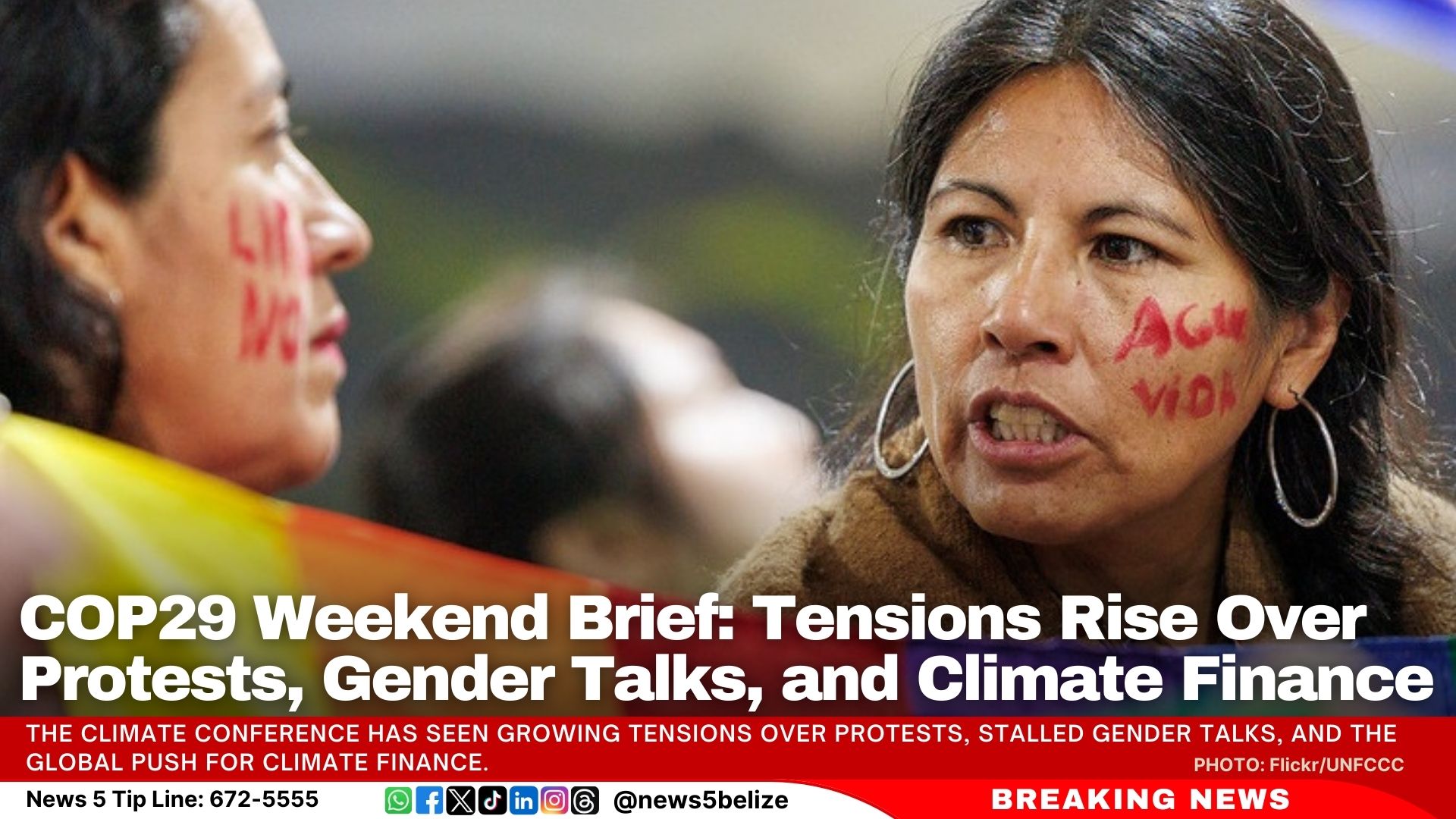As COP29 continues in Baku, Azerbaijan, the climate conference has seen growing tensions over protests, stalled gender talks, and the global push for climate finance.
On Day 6, climate activists attempted to make their voices heard but were restricted by strict security rules. The protesters were told they couldn’t march through the streets and were limited to a rally inside the conference venue. Eduardo Giesen from the Global Campaign to Demand Climate Justice expressed frustration, saying, “It was like talking between ourselves.”
Discussions on integrating gender equality into climate policy have also stalled. The renewal of the Lima Work Programme, which aims to promote gender equality in climate action, has hit a deadlock due to disagreements over human rights and finance. Countries such as Iraq, Saudi Arabia, and Egypt are blocking key elements of the proposal, raising concerns that the talks could collapse or be delayed until next year.
The energy transition is another area of tension at COP29, with conflicting proposals on how to phase out fossil fuels. The United Arab Emirates (UAE) has called for a dialogue on the energy transition, while countries like China and Saudi Arabia are pushing for a stronger focus on climate finance instead. Fijian Deputy Prime Minister Biman Prasad emphasised the importance of finance, stating, “Finance is critical for a successful fossil fuel transition,” and called for a robust climate finance goal to support this shift.
There are also concerns about the lack of women in leadership roles at COP29. Only 8% of world leaders attending the conference are women, a significant drop from last year, raising questions about gender equality in both leadership and policy.
Grenada’s Prime Minister Calls for Action on Climate Finance at COP29
Focus Back on Climate Finance
On Day 7, the focus shifted to climate finance, with UN climate chief Simon Stiell urging delegates to “find common ground” and finalise a new climate finance agreement. He stressed the urgency of reaching a deal to help developing countries fight climate change.
The European Union has called for wealthier countries like China and the Gulf states to contribute more to global climate finance. EU climate commissioner Wopke Hoekstra said, “With affluence comes responsibility,” but added that contributions could be voluntary, offering flexibility to countries resistant to formal commitments. He also acknowledged that private sector investment will be key: “There will never, ever be enough public money—from any source.”
COP29 has also seen criticism directed at certain countries. South Korea was awarded the “Fossil of the Day” for blocking a deal to end $41 billion in annual subsidies for oil and gas, with Climate Action Network (CAN) accusing the country of an “unconstructive negotiating position.” Finland also faced backlash for allegedly misreporting its climate finance contributions by counting market-based loans instead of actual funds, earning it a “dishonourable mention.”
